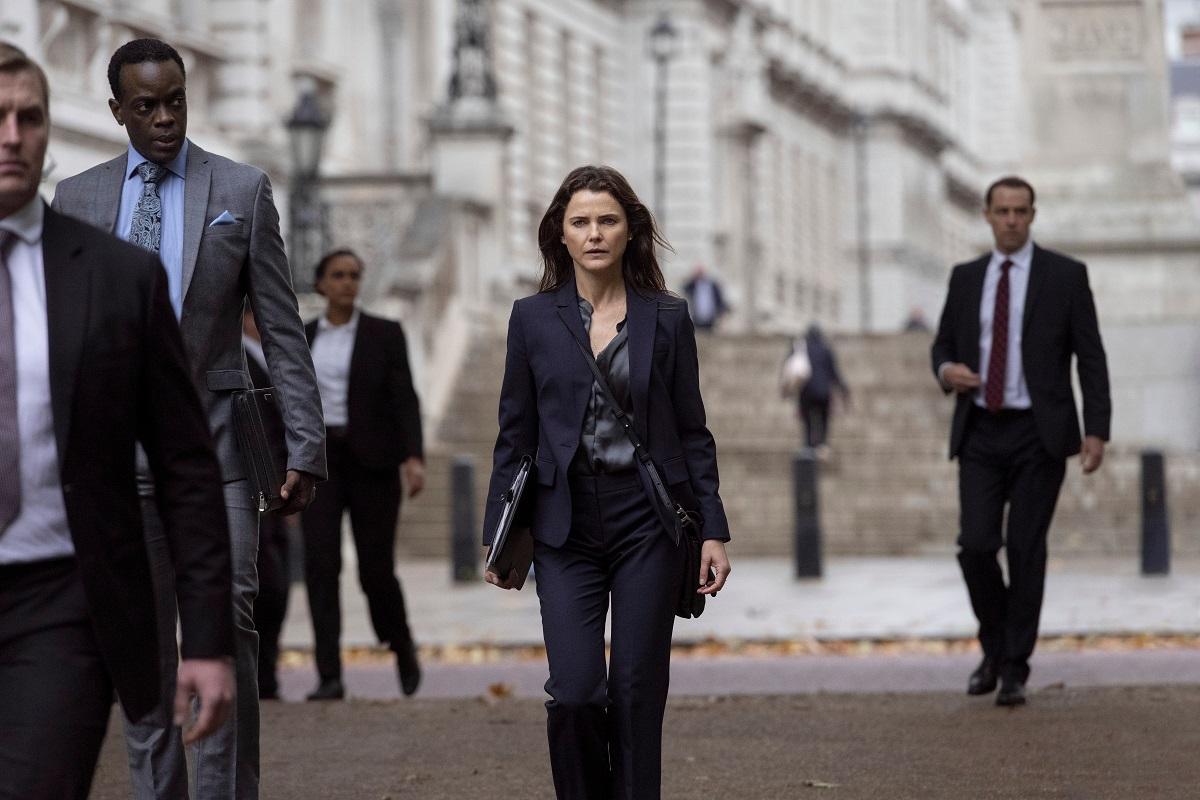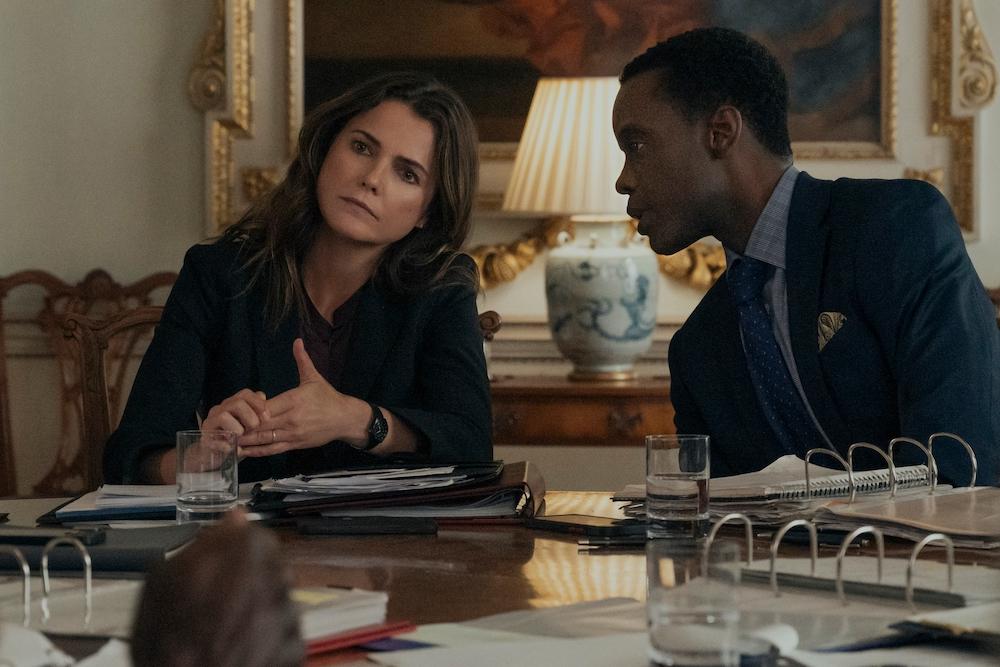In the ever-evolving landscape of television, political dramas have carved out a niche that captivates audiences with their intricate plots, compelling characters, and timely reflections on real-world events. Among the myriad of offerings in this genre, “The Diplomat” has emerged as a frontrunner, setting a new standard for storytelling and viewer engagement. This article delves into the factors that have propelled “The Diplomat” to the forefront of the political drama pack, examining its innovative narrative structure, the depth of its character development, and its astute commentary on contemporary geopolitical issues. By dissecting these elements, we aim to uncover why “The Diplomat” not only resonates with audiences but also redefines what viewers can expect from political dramas in the modern era.
Compelling Character Development and Complex Interpersonal Dynamics
At the heart of The Diplomat lies its mastery in crafting compelling character development and weaving complex interpersonal dynamics. The series does not shy away from presenting its characters as multifaceted individuals, each with their own motivations, flaws, and growth arcs. This depth ensures that viewers are not just passive observers but are actively engaged in unraveling the intricate layers of each character’s persona.
- Nuanced Protagonists: The lead characters are portrayed with a level of depth that transcends the typical political drama archetypes. They are not merely defined by their roles but by their personal journeys, which often intersect with their professional lives in unpredictable ways.
- Interpersonal Tensions: The series thrives on the tensions between characters, using these dynamics to drive the narrative forward. Whether it’s a power struggle or a moment of vulnerability, these interactions are crafted with precision, highlighting the emotional and psychological complexities involved.
- Growth and Transformation: As the plot unfolds, characters undergo significant transformations, often challenging their own beliefs and adapting to new realities. This evolution is portrayed with a realism that resonates with audiences, offering a reflection of the ever-changing nature of human relationships.
By focusing on the intricate dance of personal and political ambitions, The Diplomat not only captivates its audience but also sets a new standard for storytelling in the genre. The series proves that at the core of any great political drama lies the ability to portray characters who are as unpredictable and complex as the world they inhabit.

Authentic Representation of Diplomatic Challenges and Global Politics
In a landscape where political dramas often simplify or sensationalize international relations, “The Diplomat” stands out for its authentic portrayal of the intricate web of diplomatic challenges and global politics. This series delves into the nuances of international diplomacy, offering viewers a more realistic perspective on how global decisions are made. It captures the complexity of negotiations, the balancing of national interests, and the often-underestimated personal dynamics that play a crucial role in shaping international policies.
- Realistic Scenarios: The show doesn’t shy away from depicting the gritty realities of diplomatic work, including the long hours, high-stakes negotiations, and the constant pressure to maintain international peace.
- Complex Characters: Characters are crafted with depth, reflecting the multifaceted personalities often found in real-world diplomacy. They are not mere caricatures of politicians but are shown as individuals with personal stakes and moral dilemmas.
- Authentic Dialogue: The dialogue is sharp and informed, avoiding the oversimplification of political discourse. It mirrors the jargon and strategic language used by actual diplomats, adding a layer of credibility to the narrative.
Furthermore, “The Diplomat” explores the interconnectedness of global politics, highlighting how a single decision can ripple across continents. The series underscores the importance of understanding cultural contexts and historical backgrounds in diplomatic negotiations. It also emphasizes the significance of soft power and the subtle art of persuasion in achieving diplomatic goals. By weaving these elements into its storytelling, “The Diplomat” not only entertains but also educates its audience, making it a leader in the political drama genre.
Innovative Storytelling Techniques Elevating Narrative Engagement
In the ever-evolving landscape of political dramas, The Diplomat has distinguished itself through its innovative storytelling techniques, crafting a narrative that captivates and engages audiences on multiple levels. One of the key elements that sets this series apart is its adept use of non-linear storytelling. By weaving together past and present events, the show creates a rich tapestry that deepens character development and enhances the complexity of the plot. This approach not only keeps viewers on their toes but also invites them to actively piece together the narrative puzzle, fostering a more immersive viewing experience.
Another standout technique employed by The Diplomat is its focus on multi-perspective storytelling. By presenting the storyline through the eyes of various characters, the series offers a multifaceted view of the political landscape. This method not only enriches the narrative but also challenges viewers to consider diverse viewpoints, adding layers of intrigue and depth to the storyline. The result is a dynamic narrative that reflects the multifaceted nature of real-world diplomacy and political maneuvering.
- Interactive Elements: The show integrates interactive elements that encourage audience participation, such as social media tie-ins and online discussions.
- Real-time Updates: By aligning plot developments with current global events, the series maintains a sense of immediacy and relevance.
- Character-Driven Subplots: These subplots provide additional layers to the main narrative, allowing for a more comprehensive exploration of character motivations and conflicts.
By employing these innovative storytelling techniques, The Diplomat not only elevates narrative engagement but also sets a new standard for political dramas, proving that the genre can be both intellectually stimulating and emotionally resonant.

Strategic Recommendations for Political Drama Enthusiasts and Creators
For both enthusiasts and creators of political drama, understanding the intricate balance of realism and narrative intrigue is crucial. “The Diplomat” exemplifies this balance, offering a masterclass in crafting compelling political narratives. To replicate its success, creators should focus on a few strategic elements:
- Authenticity in Character Development: Characters should be multi-dimensional, reflecting the complex nature of real-world politics. Invest in backstories that reveal motivations and conflicts, allowing audiences to connect deeply with their journeys.
- Engaging Plotlines with Real-World Relevance: Story arcs should resonate with current geopolitical climates. By weaving in contemporary issues, creators can maintain relevance and engage viewers who are keenly aware of global affairs.
- Dynamic Dialogue and Tension: Sharp, intelligent dialogue is a hallmark of successful political dramas. Craft conversations that not only advance the plot but also reveal the power dynamics and ethical dilemmas faced by the characters.
For enthusiasts, the strategic consumption of political dramas like “The Diplomat” can enhance their understanding of political intricacies. Engage critically with the content, identifying the nuances of diplomacy and strategy portrayed, and consider how these elements mirror or diverge from real-world politics. This analytical approach not only enriches the viewing experience but also fosters a deeper appreciation for the genre.


